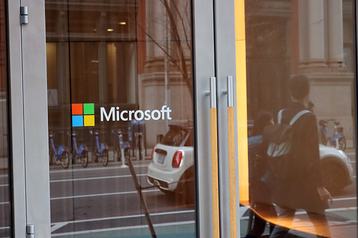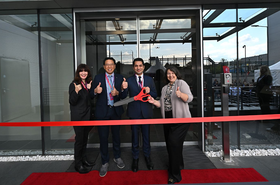Microsoft is reportedly unlikely to meet the deadline given by CISPE to provide a multi-tenant hybrid cloud for service providers in Europe that was required to resolve the CISPE's antitrust complaint against the company.
The Register reported, citing "multiple sources across Europe," that with CISPE's (Cloud Infrastructure Service Providers In Europe) deadline just weeks away, Microsoft is unlikely to have a solution that satisfies CISPE's requirements.
Microsoft settled the antitrust complaint from CISPE in July 2024, which argued that the company's contracts were harming the European cloud computing market.
Microsoft paid €20 million ($21.7m) to settle the deal, as well as agreeing to develop a product - Azure Stack HCI for European cloud providers (Hosters) - that enables CISPE's members to run Microsoft software on their platforms at equivalent prices to Microsoft's.
In February of this year, CISPE's observation board, the European Cloud Commission Observatory (ECCO), awarded Microsoft an "amber" status regarding its progress to meet previously agreed upon changes to its business practices.
Specifically, ECCO was concerned that not enough work had been done on the product to meet requirements and the planned deadline.
The ECCO report said that "Subsequent communications (in early 2025) have suggested that Microsoft is still 'processing and evaluating' and 'digesting' these requirements," adding that Microsoft's engineering teams have argued that they have a 'very long list of things they are working on' outside of the CISPE product and are even 'pushing' existing offerings as a solution such as Azure Local instead which would still require an Azure presence and license for each of the cloud provider’s customers. "This is unacceptable to CISPE members," said the report.
The sources spoke on the condition of remaining anonymous about the likelihood of Microsoft's timely success. One person familiar with the matter told The Register: "[The] deadline is just after Easter. Microsoft almost certainly won’t make the product in time. Microsoft underestimated the time and effort it would take to work."
The publication reports another source as saying: "These features are not easy; either they're built in the product from the beginning, or it's very, very difficult. If you think about it, to convert one product, single tenant into multi-tenant... It's quite a job. An oversubscription is not easy either.”
DCD has reached out to Microsoft for comment.
This sentiment is in line with what DCD heard earlier this week during a chat with CISPE's director of communications, Ben Maynard, at the Data Center Nation event in Milan. While Maynard didn't speculate on whether Microsoft would be ready in time for the April deadline, he conceded that the project undertaking was challenging on Microsoft's part.
"I don't think there was any 'dragging of their feet,' I think it is potentially more difficult than they thought it would be," said Maynard.
"It's legitimately technically challenging. The main thing we need is multi-tenancy. So, as a hoster, you want to be able to host as many customers on one hardware infrastructure as you can. Azure Local (the alternative to the originally pitched Azure Stack HCI for European cloud providers) doesn't do a very good job of that because it wasn't built like that.
"To a certain extent, it's like trying to fit a round peg into a square hole."







